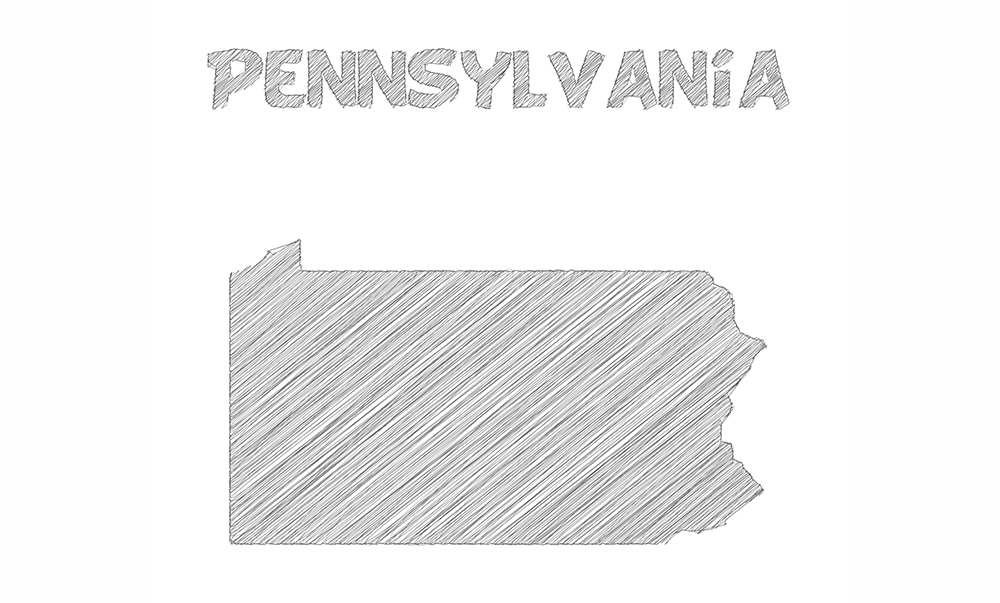August 24, 2018
Pennsylvania Governor & Senate Races, Aug 2018
NBC News/Marist Poll
In Pennsylvania where Donald Trump defeated Hillary Clinton by fewer than 45,000 votes in 2016, many Pennsylvania registered voters (71%) including 81% of Democrats say this year’s midterm elections are very important. Registered voters in the state give Democrats the advantage for the U.S. Senate and for governor.
47% of Pennsylvania voters also report they prefer Democratic control of Congress rather than Republican control (41%). And a majority of voters (51%) say they are more likely to support the Democratic candidate in their district than the Republican (39%) in November.
On both of these questions, women are more likely than men to favor the Democratic option. A 25-point gender gap is present on the question of congressional control while a 30-point gender gap exists on the generic ballot question. A fissure also occurs among white voters with and without college degrees. Majorities of white voters with a college degree are more likely to favor Democratic control of Congress (57%) and the Democratic candidate in the midterm elections (58%). 53% of white voters without a college education are more likely to favor Republican control of Congress, and 50% say they will support the Republican candidate at the polls this November.
“Democrats enter the fall election season with a lot going for them in Pennsylvania,” says Dr. Lee M. Miringoff, Director of The Marist College Institute for Public Opinion. “Both Democratic incumbents Senator Casey and Governor Wolf have double-digit leads over their GOP rivals.”
55% of voters say their midterm election vote will send a message that more Democrats are needed in Congress to be a check and balance on President Trump’s power. 35% say more Republicans are needed to push through the president’s agenda.
While men divide on this question (46% for a check on Trump to 42% to advance the Trump agenda), more than six in ten women (62%) say their vote will signal the need to check Trump’s power. 30% of women intend to send the message that more Republicans are needed to push through the president’s agenda. Also of note, there is a 37-point gap between white voters with and without a college degree. Those with a college education are nearly twice as likely to say more Democrats are needed (62%) than Republicans (32%). Among those without a college degree, 47% say more members of the GOP are required to advance the Trump agenda. 40% report Trump’s power needs to be balanced by the Democrats.
President Donald Trump’s approval rating is 38% among Pennsylvania residents. 52% disapprove of the job he is doing. The proportion of residents who strongly disapprove of Trump’s job performance (40%) outweighs the proportion who strongly approve (24%). President Trump’s favorable rating is also upside down (35% to 56%).
In the race for U.S. Senate in Pennsylvania, Democratic incumbent Bob Casey (53%) leads Republican Lou Barletta (38%) by 15 points among registered voters including those who are undecided yet leaning toward a candidate. Half of voters (50%) with a candidate preference for U.S. Senate say they strongly support their choice of candidate for U.S. Senate. The same proportion of Casey’s supporters (50%) and Barletta’s backers (50%) say they strongly support their choice of candidate.
A plurality of Pennsylvanians (44%) have a favorable opinion of Casey. 31% have an unfavorable impression, and 25% have either never heard of Casey or are unsure how to rate him. Barletta lacks name recognition. 51% of adults in Pennsylvania say they have either never heard of Barletta or are unsure how to rate him. 27% have a favorable impression of him, and 22% have an unfavorable one.
In Pennsylvania’s race for governor, Democratic incumbent Tom Wolf (54%) has a 14-point lead over Republican challenger Scott Wagner (40%) among registered voters statewide including those who are undecided yet leaning toward a candidate. A majority of voters with a candidate preference for governor (56%) report they strongly support their choice of candidate. 58% of Wolf’s supporters compared with 52% of Wagner’s backers say they are firmly committed to their candidate selection.
Nearly half of Pennsylvania residents (48%) have a positive opinion of Wolf. 37% have an unfavorable view of him, and 15% have either never heard of Wolf or are unsure how to rate him. Wagner is less known. A plurality of Pennsylvanians (37%) have either never heard of him or are unsure how to rate him. About one in three (32%) have a favorable view of Wagner, and 31% have an unfavorable opinion of him.
24% of the electorate say the economy and jobs is the number one issue in deciding their vote in November. A similar 23% mention health care. Immigration is the top issue for 13% while 10% mention federal taxes and spending. Guns (8%), foreign policy and terrorism (7%), and abortion (6%) follow.
By party, health care is the top motivating issue for nearly four in ten Democrats (37%). Close to one in three Republicans (32%) cite the economy and jobs as their main campaign issue. Among voters with a first choice 20% say the economy and jobs is the second most important issue in deciding their vote. 18% mention health care.
A plurality of Pennsylvania residents (45%) think raising tariffs and barriers to imports from other countries will increase the cost of consumer goods and hurt the U.S. economy. 27% say such a policy will protect American jobs. 14% do not think there will be much of an impact.
Complete August 24, 2018 NBC News/Marist Poll Release of Pennsylvania

